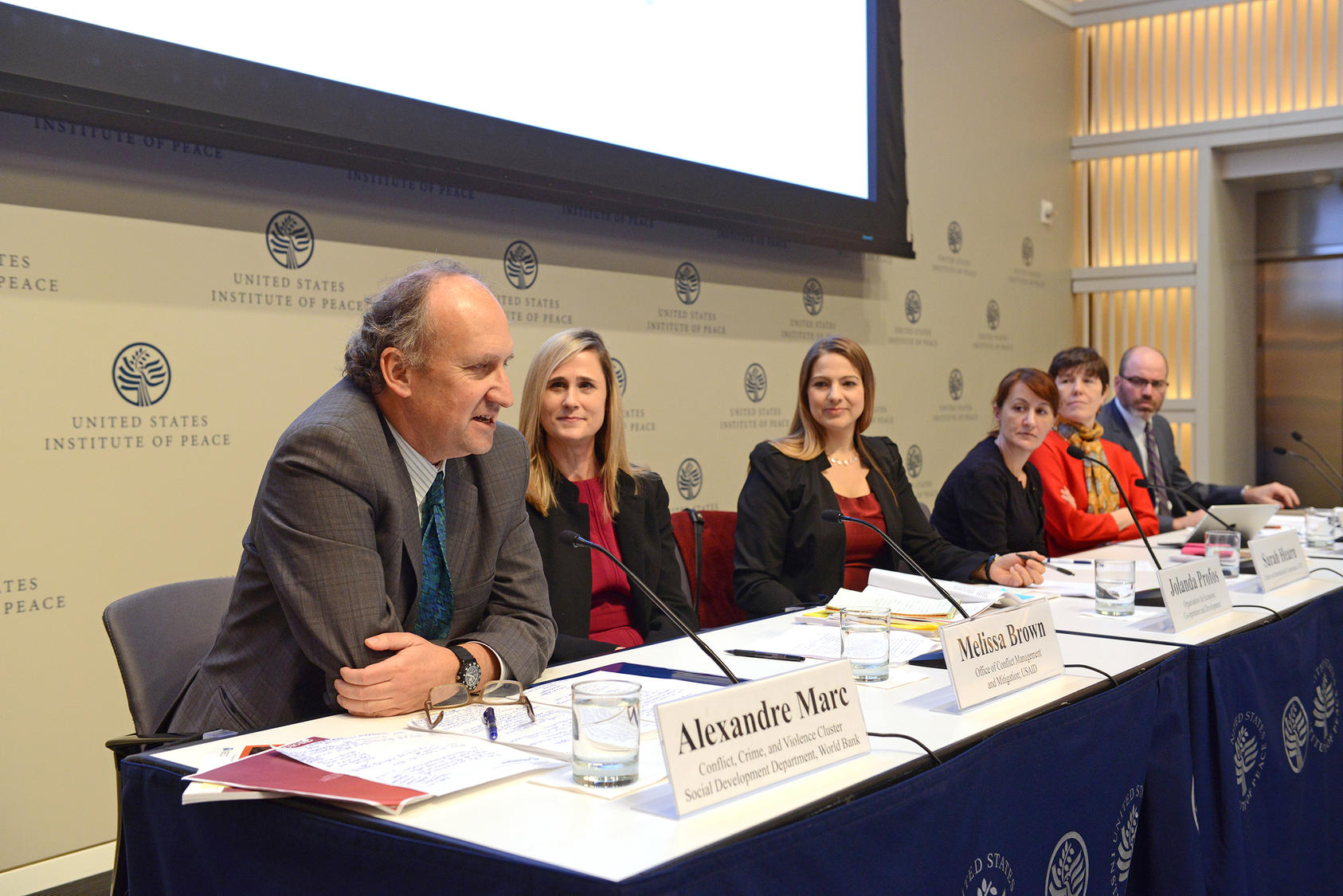States of Fragility: Post-2015 Ambitions
OECD Releases Annual Report on Fragility
More than 1 billion people live in countries affected by armed conflict or by the fragility of their societies. Fragile states are often vulnerable to conflict because their populations tend to see their governments as ineffective, illegitimate, or both. As a group, they are the ones that lag furthest behind in achieving the United Nations’ Millennium Development Goals. On Friday, March 27 USIP hosted a discussion regarding a new report by the Organisation for Economic Co-operation and Development, “States of Fragility 2015: Meeting Post-2015 Ambitions.”

This panel discussion, sponsored by the United States Institute of Peace (USIP), the U.S. Agency for International Development (USAID), the Organisation for Economic Co-operation and Development (OECD), and the World Bank,took place at USIP from 10:30 a.m. to 12:30 p.m.
The report presents a new understanding of fragility that moves beyond the conventional notion of fragile states. It puts forward a working model based on five dimensions: violence, justice, institutions, economic foundations, and capacity to respond to shocks and disasters. It measures all countries worldwide to identify the 50 most vulnerable states in each dimension, and discusses the implications of a universal approach for policies, practices, aid and monitoring. The report also assesses how the international development community allocates its resources.
Speakers
Nancy Lindborg, Opening Remarks
President, U.S. Institute of Peace
Melissa Brown
Director, Office of Conflict Management and Mitigation, USAID
Alexandre Marc
Chief Technical Specialist, Fragility, Conflict and Violence-Cross Cutting Solutions Area, World Bank Group
Brenda Killen
Deputy Director, Development Co-operation Directorate, OECD
Jolanda Profos
Peace and Conflict Adviser, Development Co-operation Directorate, OECD
Sarah Hearn
Associate Director and Senior Fellow, Center on International Cooperation
Andrew Blum, Moderator
Vice President of Program Management and Evaluation, U.S. Institute of Peace
A copy of the report may be downloaded at www.oecd.org/dac/governance-peace beginning on March 26, 2015.




